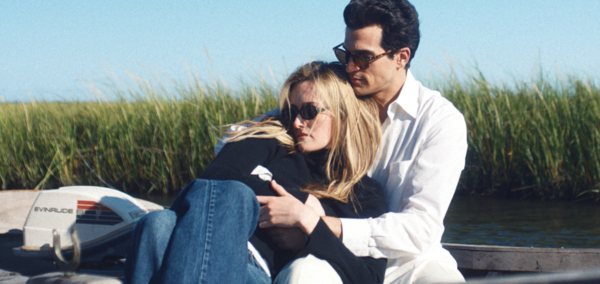
Review: Oedipus Tyrannus
‘Nothing can have the same effect on a mortal soul as to have been made a spectator in all its horror’
Oedipus (Ryan Keys) is the king of a city in turmoil, doing everything he can to protect his people from a plague. When it is revealed that the disease was caused by divine punishment for the harbouring of the last king’s killer, he works tirelessly to discover his identity so that justice can be enacted. Naturally, as the quintessential tragedy, all of his attempts to improve his situation do nothing except cement his demise, and the audience is left to stand by as the drama unfolds, leaving Oedipus “imprisoned in the narrative of his fate”.

Jocasta and Oedipus. Image credit: Paul Ashley
Staging a production of one of the most famous stories of all time, which has been put on stage for over 2500 years, is nothing if not ambitious. There is the matter of adapting Sophocles’ script into something that resonates with modern viewers, having actors give dramatic monologues in a way that doesn’t feel forced, and achieving the emotional impact that tragedies have for millennia, all while adding some sort of twist to differentiate the production from those that came before it.
Oedipus achieves this excellently, in large part due to its staging. The set is simple, empty besides white curtains above the stage and a single drum in the corner. The audience’s focus is forced to remain on the characters, contributing to a painfully intimate viewing experience. The lighting is simple but effective, used to isolate characters from each other and the audience from the characters at different points. As the show begins, viewers are plunged into darkness, lights remaining dim as Fate (Daphne Stavride) addresses them directly, warning them of the nature of events that are about to unfold.

The chorus. Image credit: Paul Ashley
The chorus, led by Johnny Kennedy are also vital in building atmosphere and tension throughout the play. Far from fading into the background, they bring spectacle in the form of chants accompanied by highly physical movements, alongside drum beats and vocals from Freddie Jemison.
Keys expertly captures Oedipus’ descent from control to paranoia and eventually to destruction. As he undergoes this process, his wife Jocasta (Shaira Berg) provides security and comfort, even as she becomes aware of her precarious situation. Again, Berg captures this well, showing the threat of fears bubbling to the surface of a woman who needs to maintain self-control for the sake of the people and city she loves.
The costumes, designed by Ella Joralemon, were exquisite. All characters, besides Fate and the prophet Tiresias (Harriet Regan) spend the bulk of the play wearing masks, which can only be removed by those who understand the truth of their situation. At the start of the play, Oedipus appears as a typical king, wearing a bold red gown and golden laurel crown while Jocasta looks every bit the widowed queen we expect – entirely in black with the exception of sparkling gold details on her veil. Visually, with these elaborate garments, the high status of the royal family, and therefore how far they have to fall, is exaggerated. Fate stands apart from the rest of the cast, clad in ornate blue robes while black, red, and white dominate elsewhere, adding to the sense of her as something ethereal; a bridge between the story and the audience. Tiresias’ costume was surprising, with Regan wearing a crown of twigs, garlands of ivy, and green face paint, utterly connected to nature, separate from society and the issues that permeate it.

Oedipus and Tiresias. Image credit: Paul Ashley
You are unlikely to leave Oedipus with an immense feeling of happiness, but a slight chill and feeling of catharsis is probable. It therefore achieved what a tragedy should, providing a break from the usual struggles of daily life by spending time in a distant land where human emotions are elevated onto an epic scale. A tragedy that leaves you feeling a little shaken up is one done right. After all, Fate’s closing message is clear; if you leave the theatre frightened by what you saw, “fate has paid you your proper caution”.
5/5
Oedipus Tyrannus is showing at the ADC Theatre on the 21st – 25th of May. Tickets can be bought here.
Featured image credit: Paul Ashley
Related articles recommended by this author:


















